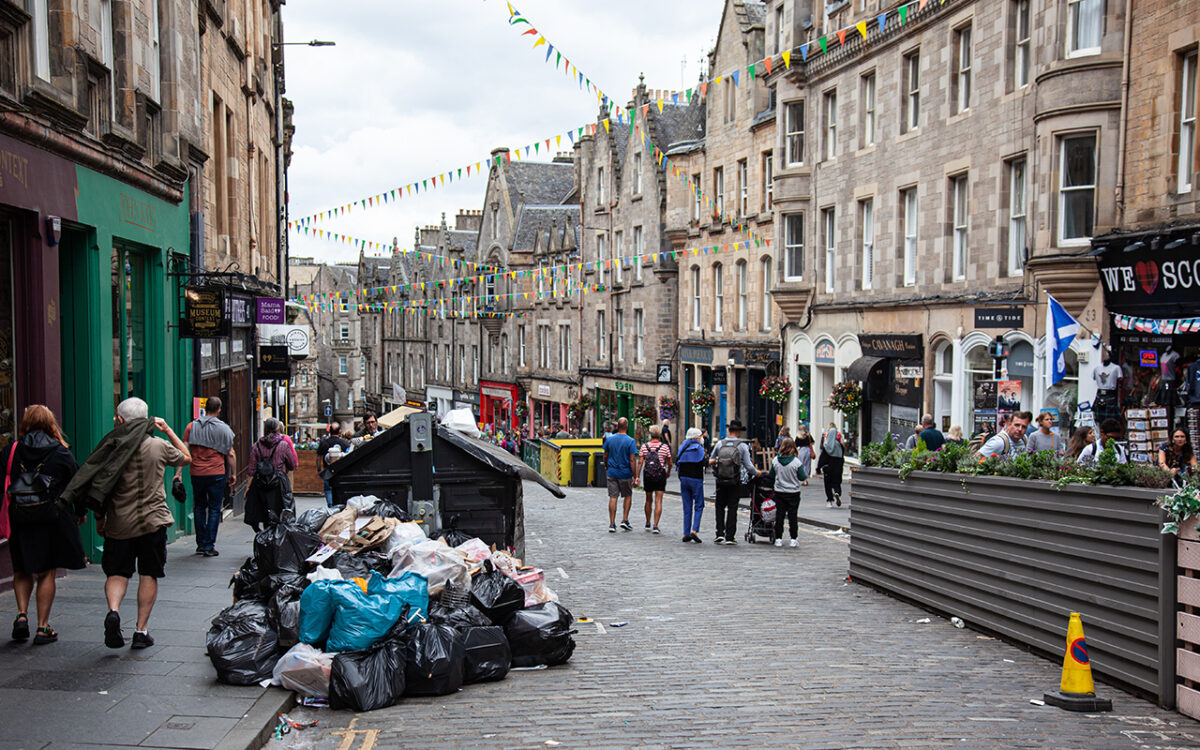Strikes across Scotland are set to go ahead as council body, government and unions reach an impasse

TRADE groups and operators have expressed anger and disappointment as a series of strikes looks set to leave rubbish piling up across Scotland during the country’s busiest tourist season.
A statement issued by union GMB on Wednesday (31st July) said talks between unions, councils body COSLA and the Scottish Government had ‘stalled’.
Trade union members in councils across Scotland are now set to strike for eight days from 14th August.
The situation echoes a similar impasse in 2022, when strikes left rubbish piling up in council areas across the country.
In an open letter to COSLA, the Scottish Government and the unions, groups including the Scottish Licensed Trade Association, Scottish Tourism Alliance, UKHospitality Scotland and the Scottish Beer and Pub Association expressed their ‘disappointment and frustration’ with all sides of the dispute over the proposed strikes, which they said will disrupt ‘major summer events in Scotland including Edinburgh’s festivals’.
“Every summer, Edinburgh is the centre of the world for arts and culture, with the various festivals attracting hundreds of thousands of visitors,” said the organisations.
“Our city is on the world stage and the festival season provides an opportunity for Edinburgh and the Lothians to cement and enhance its standing as a global destination.
“Unfortunately, two years ago, this opportunity was seriously undermined by industrial action over the festivals. This tarnished our city’s reputation among visitors from across the globe – potentially impacting future trade – while also negatively impacting the experience for locals and our businesses.”
Murray Ainslie, who runs Edinburgh venues The Black Grape and Paloma, said the strikes ‘will be really challenging’ for city operators.
“As well as contending with short term issues surrounding rodent activity, street hygiene and reduced kerb appeal, there’s also a very real risk that we harm our reputation as a destination city which could bring serious economic consequences,” said Ainslie.
“Regardless of where negotiations get to, the council should simply not be allowed to leave the streets in that state. Operators across the country have had to swallow huge cost increases in recent years and get on with it. Why should it be different for the local council?”
Restaurateur Dean Banks, whose venues include Edinburgh sites Dean Banks at the Pompadour and Dulse, questioned why the Scottish Government had not been able to resolve the situation.
“We are meant to showcase our beautiful country, our food, drinks, produce, our art and culture, our comedy and of course, our people,” said Banks.
“The fact Scotland didn’t hand over rate relief to Scottish businesses makes this even worse. Why not use the money they saved there, to sort this? Why not come to an agreement with the people who work so hard for them?
“Why do I work my arse off to showcase my country to locals and tourists, only for this to just wipe away all that effort? It’s gutting.”
And Mike Smith of Edinburgh’s Bow Bar encouraged the affected waste workers to vent their anger elsewhere.
He said: “I think it should be criminal to deliberately create a public health risk, and instead of targeting businesses and the council tax-paying public they should continue to collect rubbish and dump it at Holyrood if they want their voices heard, and allow the rats to scavenge there.”



















